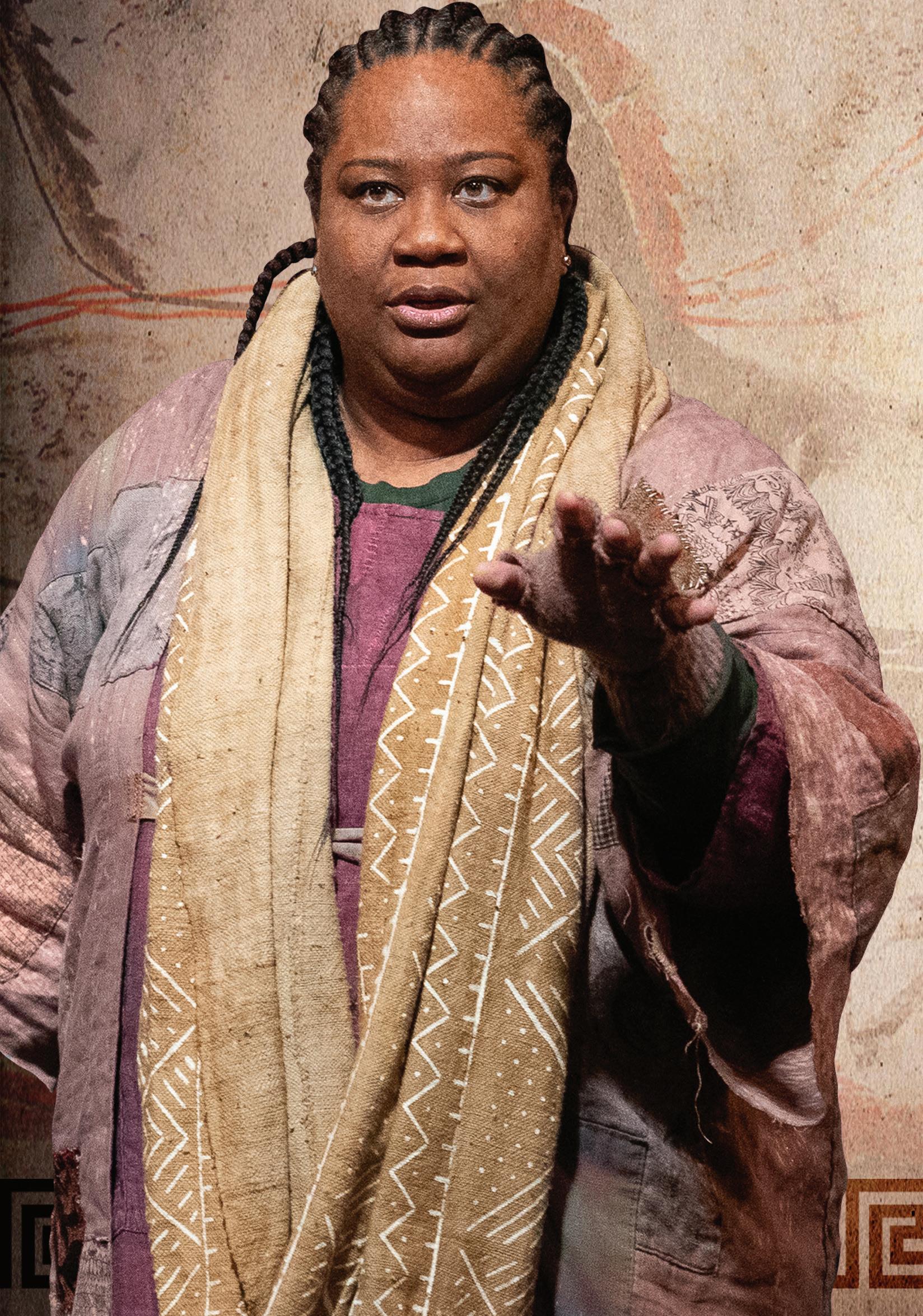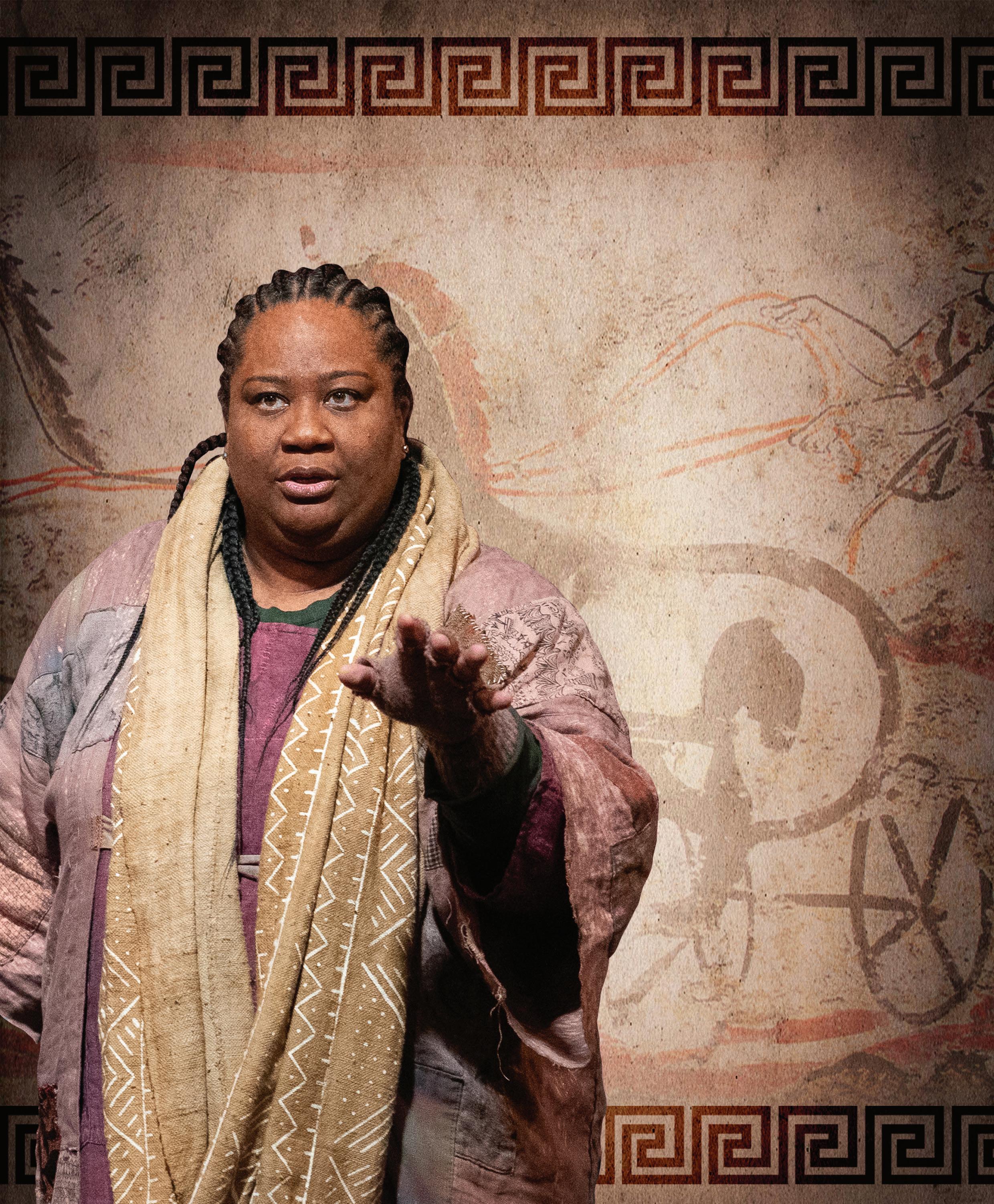
3 minute read
AN ILIAD
JUNE 3 – JULY 3 AN ILIAD
By Lisa Peterson and Denis O'Hare
Directed by Jeffrey Mousseau with MaConnia Chesser
It begins with the promise of a story – a good story, and the Poet remembers a lot of it. The armies gather, the harbors are filled with ships, and the Trojan War rages on. The warrior Achilles and proud Hector are the stars of this battle, and the Gods choose sides and cheer them on like sport as they watch from Mount Olympus. Adapted from the acclaimed translation by Robert Fagles, An Iliad refreshes a world classic and transforms Homer’s epic poem into a riveting monologue. As the Poet tells the tale – with plenty of action, intrigue, and humor afoot – she alternate between a classic, poetic voice and a modern, conversational tone. Important parallels between ancient history and the modern world are drawn, and the roles familial love and friendship play, even as violence persists, are explored.
Generously sponsored by Claudia Perles and Gerry Fultz.
DIRECTOR’S TAKE
Very early in Lisa Peterson and Denis O’Hare’s theatrical rendering of An Iliad, the sole performer, the Poet, says “Every time I sing this song, I hope it’s the last time.” When MaConnia Chesser as the Poet and I began collaborating on our production of the play at Ancram Opera House last fall, we took this line very much to heart. On one level, the Poet’s wish is easy to understand: Starting with the Trojan War and bringing us to the present day, this contemporized telling of Homer’s epic poem calls for a virtuoso of a performance demanding one’s all. But, equally challenging, the recounting of so many years of wars, as the Poet does, requires every ounce of her resolve; otherwise, grief could consume her. In Ancram, An Iliad was our first production back indoors, and we quite literally located the Poet amidst the detritus of a rehearsal stopped in its tracks—either because violence had broken out there or we, like theaters everywhere, had been abruptly shuttered. Now, in journeying to Lenox, the Poet as embodied by MaConnia returns to a stage she knows well. It’s her artistic home, albeit one equally in the throes and caught between shows. If there’s any balm, it’s that the Tina Packer Playhouse—so familiar to MaConnia and many of you—might provide the Poet with refuge and safety. With a bit of irony, however, it's not lost on me that this stage has witnessed its share of battles. War is obviously at the forefront of many of Shakespeare’s plays. The echoes of clashing weapons linger in the air here; relics of prior wars can be found accumulating in every inch of the place. The past is very much part of the present. This melding of time matches the Poet’s experience who has trouble distinguishing one atrocity from the next, making it essential for her to sing her song, right here and right now, if only to keep things straight. In doing so, she hopes to awaken us: yes, we may be equally overwhelmed but there must be something more that we, too, can do. — Jeffrey Mousseau













